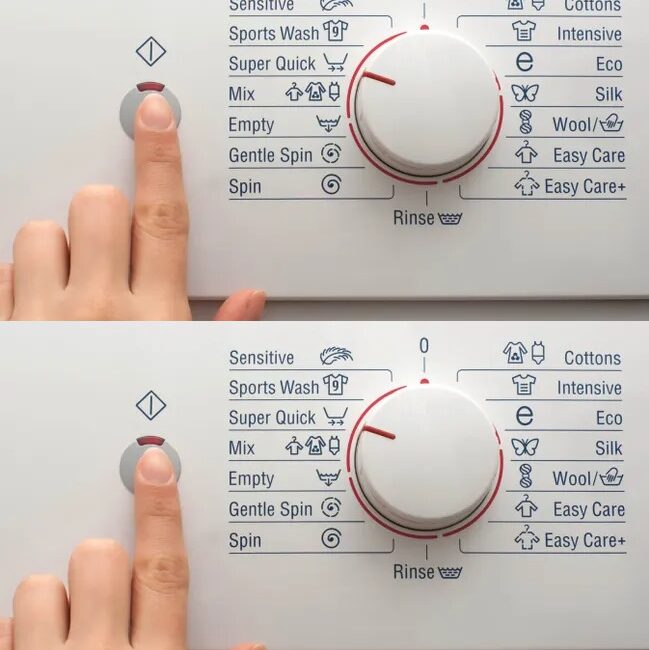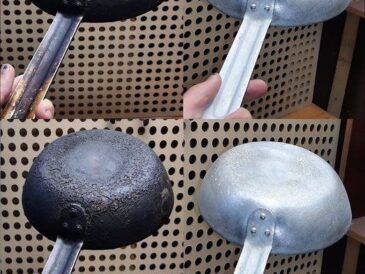In today’s fast-paced world, convenience is key, and washing machines offer various settings to cater to our busy lifestyles. Among these, the “Fast Wash” mode has become increasingly popular, as it promises to clean clothes quickly. However, while this setting may seem like a time-saver, it can cause more harm than good in the long run. Here are several reasons why you should avoid using the fast washing mode whenever possible.
1. Less Effective Cleaning
One of the main drawbacks of the fast wash setting is that it doesn’t give detergent enough time to break down stains or dirt. The quick cycle usually uses higher spin speeds, shorter wash times, and less water, which can result in clothes not being cleaned thoroughly. For heavily soiled items or clothes with stubborn stains, fast wash mode often fails to remove dirt and grime effectively.
- What to do instead: Use a longer wash cycle for dirty or stained clothing to ensure that the detergent has ample time to do its job and remove all dirt and impurities.
2. Damage to Fabrics
Fast washing cycles are designed to clean clothes quickly, but this usually means more wear and tear on your fabrics. The increased speed can lead to more friction and stress on delicate fibers, potentially causing clothes to lose their shape, fade, or even tear over time. This is particularly true for delicate fabrics like silk, wool, and fine cotton.
- What to do instead: Use the appropriate cycle for each type of fabric to ensure that your clothes are treated gently and last longer.
3. Increased Detergent Residue
Because fast wash cycles use less water and time, there’s a higher chance that detergent and fabric softener won’t be completely rinsed out of your clothes. This leftover detergent can cause irritation to the skin, especially for those with sensitive skin or allergies. Additionally, detergent buildup can affect the performance of your washing machine over time, leading to unpleasant odors or malfunctions.
- What to do instead: Opt for a standard or longer cycle to ensure a thorough rinse and to avoid detergent buildup on your clothes.
4. Energy Inefficiency
While fast wash mode might seem like a time-saver, it may not actually save you energy in the long run. Fast cycles often require higher spin speeds and more intense energy consumption to get clothes clean in a short amount of time. As a result, your washing machine may use more electricity, especially for smaller loads or heavy fabrics.
- What to do instead: Choose energy-efficient settings that match the load size and fabric type for better energy use over time. Many washing machines have eco-friendly cycles designed for longer washes with lower energy consumption.
5. Poor Results for Larger Loads
Fast washing cycles are generally intended for smaller, lightly soiled loads. When used for larger or dirtier loads, these cycles might not provide the necessary agitation, water, or time to clean the clothes properly. As a result, you may find that your clothes are still dirty or stained after the cycle finishes.
- What to do instead: Use the recommended cycle for larger or dirtier loads, giving your clothes the time and care they need to get properly cleaned.
6. Clogging of the Washing Machine
Over time, using fast wash mode on a frequent basis can cause an accumulation of detergent residue, dirt, and oils inside the washing machine. This buildup can clog the machine’s pipes or cause a malfunction, potentially leading to more expensive repairs or replacements.
- What to do instead: Regularly clean your washing machine using specialized cleaning products or a simple mix of vinegar and baking soda to maintain its performance.
Conclusion
While the fast wash mode may be tempting when you’re in a rush, it’s important to consider the long-term effects it can have on your clothes, washing machine, and energy bills. For a more effective, efficient, and gentle wash, it’s often best to stick to longer cycles that give detergent time to work, minimize damage to fabrics, and ensure your clothes come out clean and fresh. Ultimately, taking the extra time to select the right wash cycle will pay off in the longevity of your clothes and the overall performance of your washing machine.




